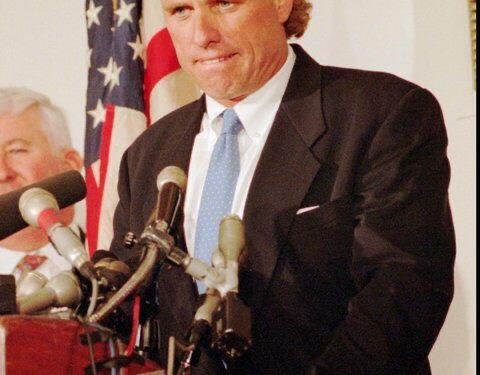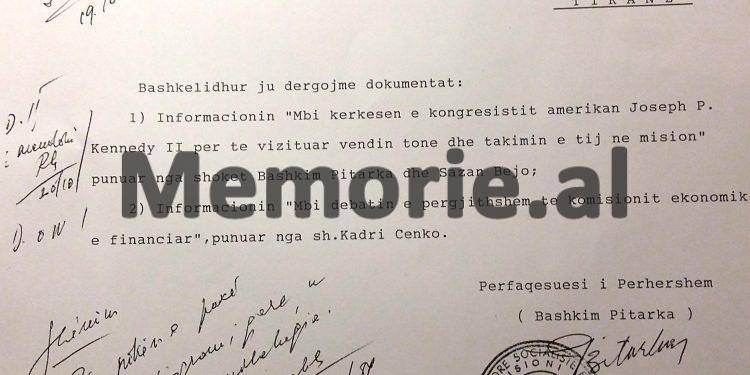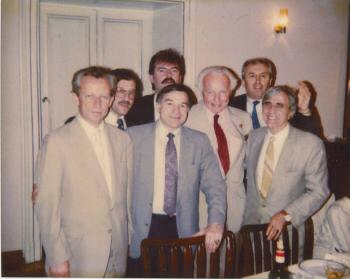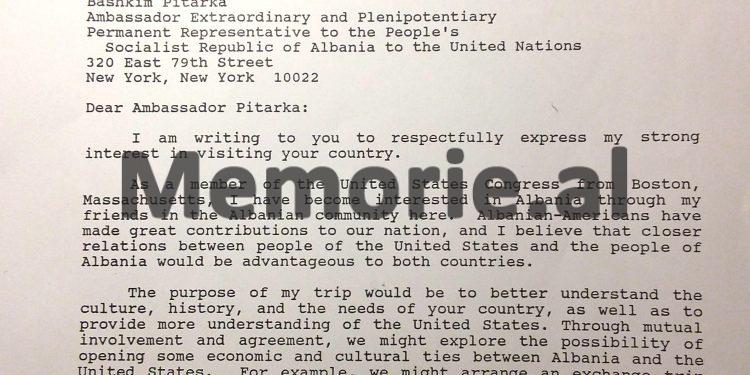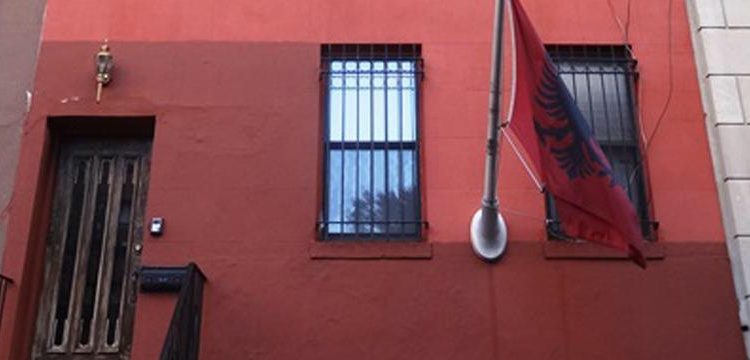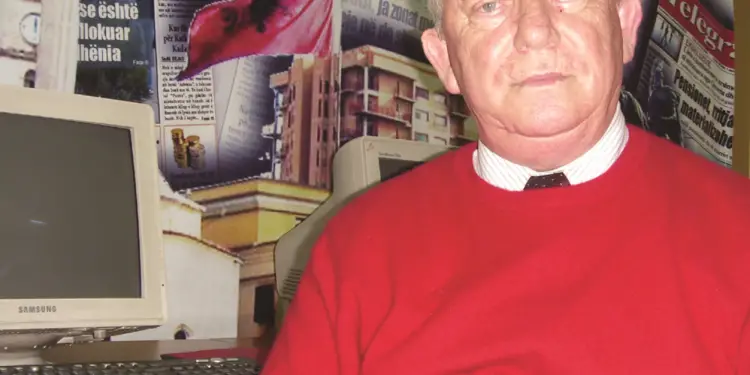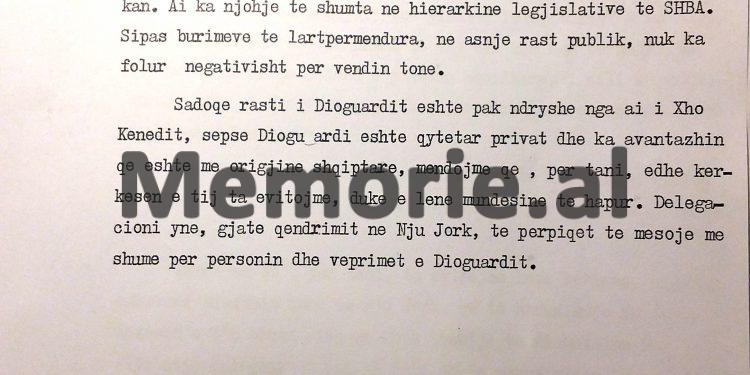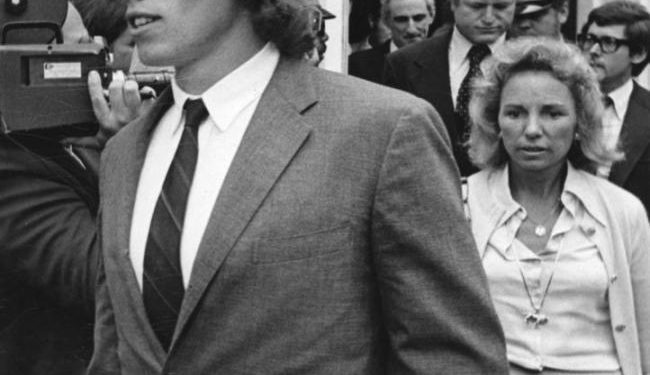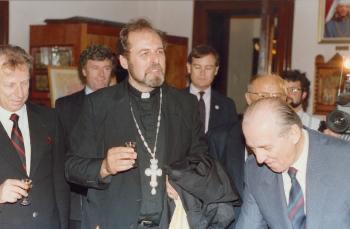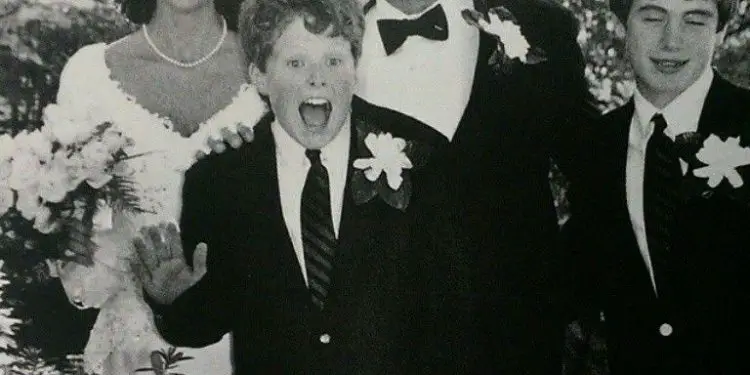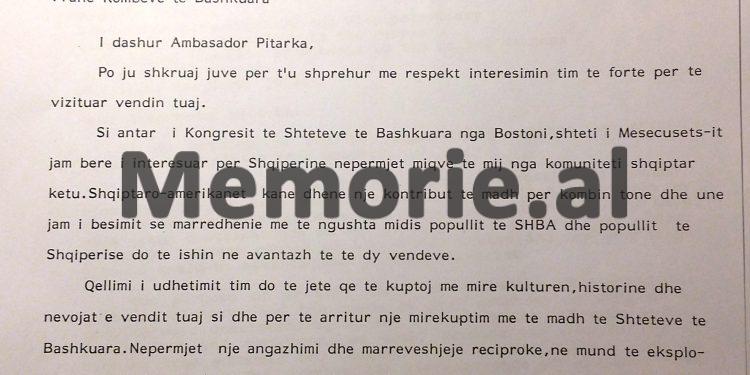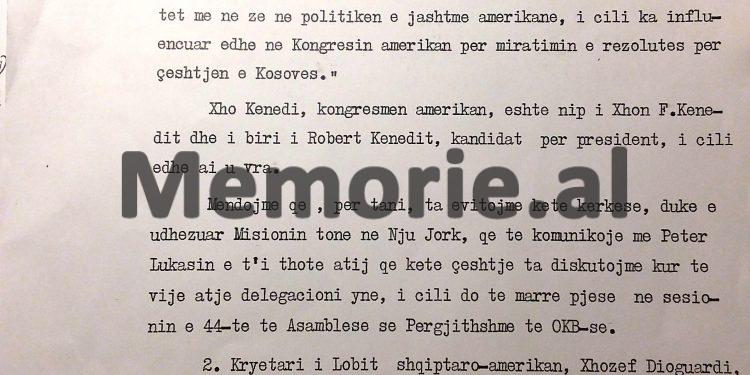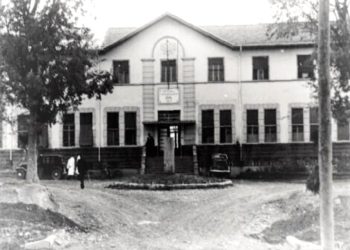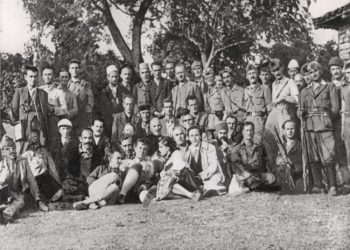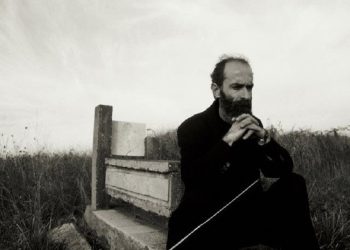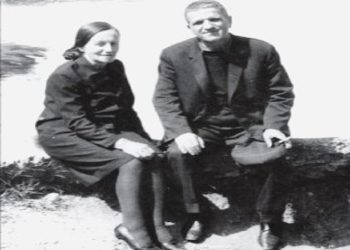Dashnor Kaloçi
Memorie.al publishes some documents extracted from the secret archives of the Ministry of Foreign Affairs in Tirana (already declassified), which deal with a correspondence of the Albanian diplomatic mission to the UN and the Ministry of Foreign Affairs in Tirana, regarding a request made by US Congressman Joseph Kennedy, the eldest son of US Senator Robert F. Kennedy, who in August 1989, submitted a request to the Permanent Representative to the Albanian Mission to the United Nations, Bashkim Pitarka, asked them to provide him with a visa, as he wanted to come for a visit to Albania, giving occasional explanations about the reasons that forced him to undertake that trip, as well as the concrete plans he had to help the country small Balkan. Who was the mediator who facilitated the meeting between the senior US politician and the Albanian mission to the UN, who was also the first American official expected of them since the end of World War II and the heated debates that took place between them regarding with the reasons presented to him and the negative response and categorical refusal that official Tirana was making to his request…?!
In the late 1980s, when “Western winds” had begun and were blowing across Eastern Europe, which “finalized” with the fall of the Berlin Wall and the opening of the borders of some former communist states, such as Hungary. etc. (where crowds of people initially flocked to Austria, West Germany, etc.), in communist Albania it seemed that things were standing still and the “waters” were not moving! The opposite was even happening! Thus, unlike most former communist countries in the East who said ok to “Gorbachev perestroika”, supporting and implementing it, Ramiz Alia, the successor of Enver Hoxha, who had sworn to “continuity”, was being held “The word given”, and with his attitudes and statements, such as: “Taraboshi is not shaken by the wind”, Albania is neither Easy nor West “,” I will eat grass, but we do not violate the principles “, etc. it seems to be sending clear signals to both the East and the West, that those things could never happen in Albania.
And based on these attitudes and statements of Enver Hoxha’s successor, many foreign analysts who followed with special attention and interest the events in the most backward communist small country in Europe, viewed with skepticism the changes that could occur, even for due to the almost half a century of isolation that communist Albania had and that was still going on. Maybe this, also because of the little information they had about what was happening in this small Balkan country, as well as the little interest that the world, or rather the West, was showing for it?! This thesis, that is, the “low interest of the West” towards communist Albania, after the ’90s, was used as an excuse by the former communist leader Ramiz Alia and some of his associates, to justify not only the delay of reforms in the economic and political aspect that happened in Albania, but also the extremely miserable and catastrophic situation where their political line that followed for almost half a century led the country.
Yes, was there really a “little interest of the West” towards communist Albania, at least in the period “post Enver Hoxha” under the leadership of Ramiz Alia?
With the exception of Strauss’s visit to Albania in the mid-1980s and his negotiations that began during Enver Hoxha’s lifetime, there is almost no evidence or other fact to confirm this. At least publicly in the press or in memoir books, by former diplomats and senior officials of the time who, for work reasons, were given the opportunity to deal or negotiate with foreign officials who had expressed interest in communist Albania.
For example. Albanian diplomats at the UN diplomatic mission, where in mid-1989, US Congressman Joseph Kennedy (sucker of the well-known American family and son of Robert Kennedy), made large demonstrations to pay a visit to Albania, promising him concrete help and arguing with convincing facts why he wanted to come to visit and help Albania?! But they, that is, the Albanian diplomatic mission to the UN, after the categorical refusal of their superiors in Tirana, not only did not allow the well-known American politician to come to Albania, but they made all sorts of very absurd pretexts (absurd and for at that time), and did not approve his request?! Even after the prayers and requests of one after another of his letters and meetings, the attitude of the top communist leadership was firm: “Joseph Kennedy, he should not come to Albania”
Regarding these and other events and facts about the request of the American Congressman, Joseph Kennedy, to come to Albania, as well as the debates that he held with the diplomats of the Albanian mission in the UN, this was the first American official they met since the end of the Second World War, etc., we know a series of archival documents (already declassified), which are published for the first time exclusively by Memorie.al
Continued from the previous issue
Information
On the request of Congressman Joseph P. Kennedy II to visit our country and his mission meeting
Taking the floor, sh. B. Pitarka for his part, among other things, said: “It is a pleasure for us to meet with you, Mr. Congressman. Through your press and conversations with Albanian-American friends we have learned about you and your activity. We know well the reputation of your Kennedy family, as I told you that day on the phone, we appreciate your friendly feelings towards the Albanian-American community as well as your friendly predisposition to get to know our country. Our friend Peter Lucas also told us about this. I learned about your desire to visit Albania from the letter you sent me. On the phone I tried to briefly tell you the objective reasons why it is not possible to visit our country at the moment. You insisted on explanations of a more detailed and well-argued answer, and for this I offered to wait for you in our mission. As I told you when we first introduced ourselves, this is the first time we meet and expect an American official on our mission.
I believe that you are aware of the state of relations between our two countries, that we do not have diplomatic relations and we do not maintain contacts. You should know that no citizen with American citizenship who does not have Albanian nationality, can obtain a visa to enter Albania, so we cannot make an exception for you for now. Albanian-Americans are constantly issued and issued visas for collective or individual visits in order to be able to see their homeland, their birthplace or their parents, as well as to see the relatives they have in Albania.
Recently, visas have been issued to go to Albania with their husbands or wives of Albanian origin, as well as some citizens with American nationality and citizenship. So, these are our consular practices regarding the issuance of visas in such cases. To your knowledge, even Albanian citizens cannot obtain entry visas to the US except for diplomats who come to work at the mission or for UN sessions. The relevant American authorities do not even recognize our state passports, so visas for us are not stamped on our passports as is the international practice, but are given on separate pieces of paper. This also applies to senior officials of our Ministry of Foreign Affairs, including our Minister. “Even this year, on those letters, the American consulate in Paris had put a note to remind them of the restriction of their movement within the 25-mile radius that applies to our diplomats.”
For his part, J. Kennedy intervened and said: “Mr. Ambassador, I thank you for hosting me and I consider this an honor to be honored. I want to emphasize that I did not expect such a refusal to visit your country. I tell you honestly that I do not understand at all why the lack of diplomatic relations and the bitter past of our relations are an obstacle to the realization of my wish, for a congressman like me, to visit your country. I am really surprised by this attitude. I have visited many places like BS, Poland, China, etc.; I have been to countries with which we do not have diplomatic relations, even to those with which we have been in conflict and war, such as Vietnam and Cambodia. I was also in Angola recently. I am an independent congressman, I have my thoughts and beliefs that do not depend on anyone, not even on the policy and attitudes of our government towards one country or another. As a congressman, I work independently to personally contribute to the recognition and strengthening of friendly ties between the American people and the peoples of different countries, with non-governmental organizations, and so on. By trying to get to know better and more closely different countries and peoples, I am better able to contribute by talking about them, giving the right explanations about the situation in them and their politics, expressing my views and opinions. even in Congress or in the American public. This is what I did these days in Congress regarding Angola. Regardless of the circumstances and state of our relationship with the Angolan government or our government’s ties to the opposition leader, Savimbi of UNITA, I expressed positive views on the development of relations, trade exchanges, aid and loans for the reconstruction of Angola, or on the banning of South African activity to the detriment of that country.
I came to you, he then continued, as a congressman but also as a friend of the Albanians and offered the hand of friendship, the olive branch. I do not know and do not believe that you have another friend like me in Congress, with such a friendly disposition towards your country. I think you are making a mistake in rejecting the request of a congressman like me to make a simple private visit to Albania. It is not a good thing to reject the hand of friendship. I can tell you that this is a step backwards. Do you want to maintain such a dark state in our relationship? Aren’t 40 years of hostility enough? At a time when the world is changing and a new spirit reigns everywhere in today’s international relations, at a time when you yourself have established and maintain good relations even with former enemy states that have invaded you, should you remain without relations?? Excuse me for telling you, but the damage done to Albania by a country like Italy is far greater than the mistakes that may have been made in the distant past by the US administration in special circumstances.
For our part, we intervened and noted: “I want to reiterate to Mr. Kennedy that we understand your desire for the visit and the motives behind it. I pointed out to you that for now, for known reasons this visit cannot be made. I did not want to get into the bitter history of our relations and of hostile activities and attitudes towards our country. But I want to emphasize that we have never confused and do not confuse different policies and administrative attitudes with the American people. We do not take a stand or criticize the US a priori for any reason or cause. On the contrary, when a gesture or a positive attitude is made, as was the case with the resolutions adopted by the House of Representatives and the Senate regarding the violation of the rights and persecution of Albanians in Kosovo, I can tell you that they do not go unnoticed. and no records were kept in our country. “But also, we cannot keep records of hostile gestures and actions that are still held against our country.”
Congressman Kennedy intervened quickly and said: “I do not know of any hostile action or hostility towards Albania in recent years. I am young and I think our generation cannot be held responsible for mistakes that may have been made in the past towards your country. But I think the past should be buried and we should work for the future. We engaged for 15 years in the war in Vietnam, yet there are now different policy attitudes towards that country; contacts and connections have started and we are doing exchanges with them. Do we have to wait 40 years for what has happened recently with Nicaragua and live in lifelong enmity with this country? Likewise, with Albania, should we continue to maintain this state of our relations? I think not. “But without meeting, without knowing and without contacts, the state of the past and normal relations for the future cannot be corrected.”
We reiterated: “I do not think there has been a change in US policy or attitudes towards our country. You say that you are not aware of unfriendly attitudes and actions towards Albania in recent years and I am only mentioning one or two facts, such as the attitude of the US administration regarding the non-return of Albanian monetary gold from England, which is kept blocked. from it even today since the post-war period. In talks with us, the British tell us that they cannot agree with us, for the return of gold without the consent of the US government before Albania has met the requirements on the American claims against it, which as the British tell us have to do with American assets in Albania, which we do not know what they are. As a result, our people are denied their legitimate right to take what belongs to them, their gold. The fact that this year, the statement made by the US Permanent Representative to the UN at the annual meeting of the Human Rights Commission in Geneva in March this year, in which he attacked Albania and our government with baseless accusations and slander on alleged human rights violations in Albania. I want to add that these “cares” of General Wolters for the democratic rights and freedoms of our free people, and with all the rights and freedoms guaranteed by the power that he himself has in hand, were done at the same time when he did not uttered a single word condemning the brutal violence and the most brutal violation of the rights of the other half of the Albanian nation in Yugoslavia, when young and old, even small families, were hit by tanks, helicopters and bullets. of the Yugoslav army forces why, they were peacefully demonstrating their rights and constitutional demands”.
Congressman Kennedy intervened again and said: “I am not aware of these facts. But I want to emphasize that in order to avoid such mistakes and attitudes and unwanted misunderstandings, to change the attitudes of the American administration towards your country, it is necessary to establish dialogue and open the way for contacts, to make efforts by people like I. Such efforts would create the conditions for an understanding of a better atmosphere that would lead not only to the solution of problems such as the one you mentioned in connection with gold, which keep our allies trapped in England but also to the achievement of a broader understanding of the need to establish friendly links and exchanges.
I, he continued, am a member of Congress. I believe you know what power Congress has, who decides on state budgets and funds, including those for the State Department. It is Congress that sets the laws and also imposes changes and attitudes on the State Department regarding US policy and international relations. You also know who’s in control of Congress is in the hands of the Democratic Party. I belong to this party, I want to contribute directly or by working with my friends in Congress for changes in favor of friendly relations with Albania. We must do this with good will, with the desire to close a dark page in the history of relations between the two countries and open a new page, that of friendship between the two peoples and two countries. This cannot be done by continuing the hostility, but by ending it through contacts and services like the ones I offer as a member of Congress and a friend of Albanians. So, I think it’s wrong to close the door on me. If you are not able to resolve this issue for me personally, then tell me who can resolve it, who to contact. May I address your foreign minister, is he here? Maybe I can write him a letter.
So, look at this issue again. Of course, I am not saying that my visit will take place tomorrow, after a week or a month, but I believe that you should consider this request realistically, properly understanding my motives and feelings and my friendly predisposition. I expect a positive response from your government. “Once again I thank you for hosting me and I express my pleasure for the conversation with you”.
After meeting with Congressman Kennedy, the Albanians who accompanied him went out with him and a little later returned to the mission. They told us that Kennedy had been pleased with the meeting, that he understood our explanations but that his desire for the visit was great and sincere. Journalist P. Lukas stressed that according to him his visit to Albania would be of positive value. In Congress, he said, we and you would have a friend who would help us a lot. He added that Kennedy is a serious man, a promising personality, and that after the retirement of his uncle Edward Kennedy, he will become a senator from Massachusetts and will run for the US presidency./Memorie.al
New York, 14.10.1989
Bashkim Pitarka
Sazan Bejo




